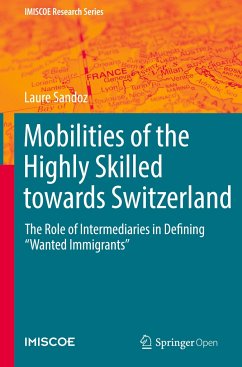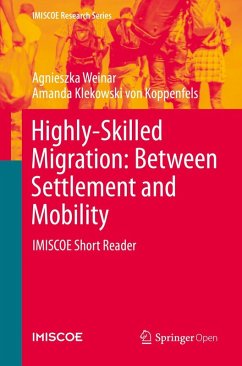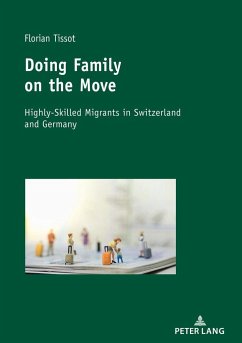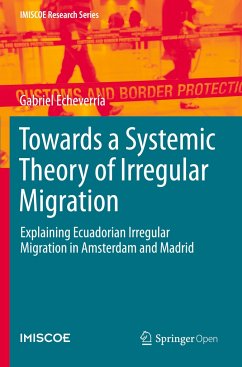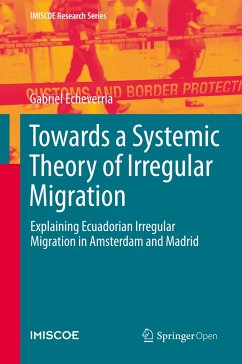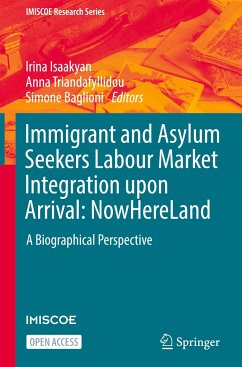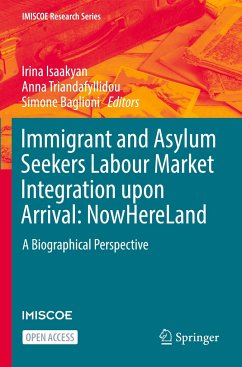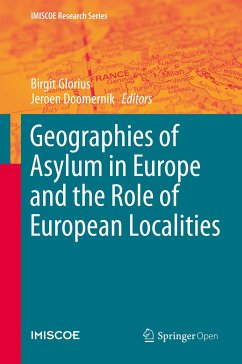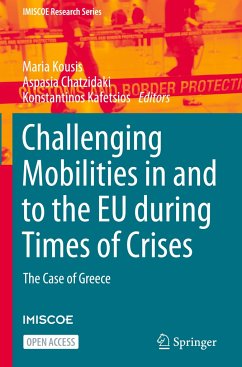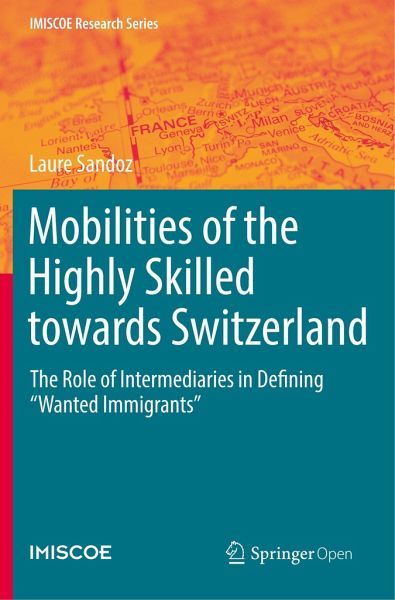
Mobilities of the Highly Skilled towards Switzerland
The Role of Intermediaries in Defining "Wanted Immigrants"

PAYBACK Punkte
19 °P sammeln!
This open access book analyses the strategies of migration intermediaries from the public and private sectors in Switzerland to select, attract, and retain highly skilled migrants who represent value to them. It reveals how state and economic actors define "wanted immigrants" and provide them with privileged access to the Swiss territory and labour market. The analysis draws on an ethnographic study conducted in the French-speaking Lake Geneva area and the German-speaking northwestern region of Switzerland between 2014 and 2018. It shows how institutional actors influence which resources are a...
This open access book analyses the strategies of migration intermediaries from the public and private sectors in Switzerland to select, attract, and retain highly skilled migrants who represent value to them. It reveals how state and economic actors define "wanted immigrants" and provide them with privileged access to the Swiss territory and labour market. The analysis draws on an ethnographic study conducted in the French-speaking Lake Geneva area and the German-speaking northwestern region of Switzerland between 2014 and 2018. It shows how institutional actors influence which resources are available to different groups of newcomers by defining and dividing migrants according to constructed social categories that correlate with specific status and privileges. This research thus shifts the focus from an approach that takes the category of highly skilled migrant for granted to one that regards context as crucial for structuring migrants' characteristics, trajectories, and experiences. Beyond consideration of professional qualifications, the ways decision-makers perceive candidates and shape their resource environments are crucial for constructing them as skilled or unskilled, wanted or unwanted, welcome or unwelcome.



